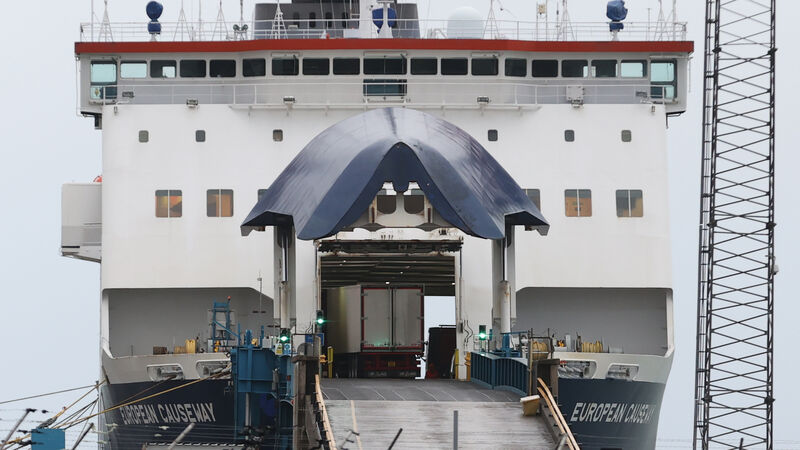Brexit red tape and delays at ports 'to drive up prices for Irish consumers'

A lorry boards the P&O Ferry European Causeway at Larne Port.
Brexit "red tape" and delays at ports will drive up prices of Irish goods in the coming months, Bank of Ireland group chief economist, Loretta O'Sullivan has warned.
Ms O'Sullivan said that the bank's business customers had signalled that the additional costs entailed in policing imports from Britain into the all-island EU single market, including many items from groceries to building materials for the Irish construction industry, will inevitably drive up prices.














